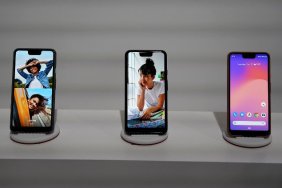Google could be set to launch a new mobile network service today that may completely change the way we pay for our data usage.
The company’s Mobile Virtual Network is tentatively titled Project Fi, though it is believed that Google may change its name to Google Wireless upon launch. A report from the Wall Street Journal suggests that the company will not charge users a set monthly fee for their data usage, as is the standard in both the USA and UK, but will instead charge them for the amount of data they actually use.
Also See: Google Now Lets You Download and Delete Your Entire Search History – Here’s How To Do It
This means that there will be no high fee for those who want “unlimited” data, and that those who find themselves frequently running over the data they have available in their mobile plan will no longer find themselves incurring those nasty, inflated extra charges.

Project Fi was uncovered after these icons were found hidden in app, which allowed users to sign up for an account with the service despite it being non-existent.
If this is to be the case, then Google is swiftly becoming one of the most pro-consumer major tech companies out there. Its Google Fiber service is already gaining a great deal of ground on its competitors, offering high-speed broadband for a fraction of the price charged by other ISPs. Time Warner Cable recently raised its internet speeds for free in Charlotte, North Carolina, after Fiber made its way into the city and offered them 1000Mbps speeds for $70 per month. Project Fi could be set to have the same reaction, with Mobile Virtual Network Operators (MVNPs) and their hosts potentially being forced to revise their price plans.
According to the report, Google’s Project Fi will be launched in the US today (April 22nd), though it is expected to be a small-scale rollout. It has been said that the company eventually hopes to move the service from the US to the UK, eventually offering free roaming and rolleover data in the region.
We hope these reports are true, and that Project Fi will come to the iPhone, too, rather than just being made available for Android devices.








